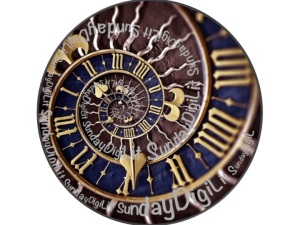 As part of a continuous collaboration among educators interested in digital learning, Margaret Simon has started a weekly Digital Learning round-up on her blog: DigiLit Sunday. I'm joining the event for the first time today. Stop by Reflections on the Teche to read, discover, and link.
As part of a continuous collaboration among educators interested in digital learning, Margaret Simon has started a weekly Digital Learning round-up on her blog: DigiLit Sunday. I'm joining the event for the first time today. Stop by Reflections on the Teche to read, discover, and link.When choosing apps for our classroom I try to be intentional. It seems less can really be more if you pick the right apps. Here are a few things I consider:
- Do apps allow students to create?
- Is it easy to navigate?
- Can students create in a timely fashion in this application?
- Do apps connect to our curriculum and the focus of our learning?
- Do the apps allow students to work where they are as learners?
- Will the apps allow students to create in authentic ways?
- How can work be saved?
- How can work be shared with others after it is complete?
- Will app allow students to discover and build understanding?
- Does the app allow collaboration and/or commenting?
Here are a few of my favorite apps for reader response:
Pixie: In our district we have Pixie on our laptops so students become very familiar with this application. It is a little expensive to add to the laptops, but I find it works well as it allows students to add images, create pictures, include audio, and create flexibly. (Wixie is a FREE alternative app.)
Here's a response to That Is Not a Good Idea by Mo Willems
Educreations: Here is a quick recording made by a student to share her favorite books from the year. She made this as we were reflecting on our reading and planning new reading for the summer. This year, my students preferred Pixie in reading, but I think Educreations has a lot of possibility.
Kidblog: Many students prefer to go to Kidblog to create and share their thinking about books. Often students choose Kidblog to write about their reading so friends can comment.
 |
| This was created in Pixie and inserted into the post. Students can also post directly into the blog. |
Potential for Writing About Reading:
I played around with Haiku Deck earlier this year. It's ease in adding images and then inserting text made it a quick application to utilize. Additionally, the finished product is transformed into a presentation format in seconds. I'm thinking students could use this to find images that might describe a character or to connect themes from books to their lives. I'm thinking it also might be a way to build vocabulary through images with second language learners or those who need more experience with a topic.
 |
| Haiku Deck |
 |
| Corkulous Free (Pro allows more boards) |
 |
| Nearpod |
Please take a moment to share some of your favorite tools for reader response.



Wow! You have some great ideas here! I think I need to check Pixie and Haiku Deck. Glad to get new ideas! Thanks!
ReplyDeleteThanks for all the suggestions you made here. I agree with your thinking about how the apps work in the classroom. I tried haiku deck, but we were not able to access the images through the blocked network. So I had to teach my students how to get an image from the internet and upload it. I think the added steps discouraged them from choosing it again on their own. I have not tried Pixie and Educreations yet. Thanks for linking up.
ReplyDeleteThanks for sharing your thoughts about different apps and how they seem to be increasing book response. My 3rd graders each have an edgublog and they appreciated comments from others. I do think that increased their responses too. I am unfamiliar with Pixie and Educreations. My quick view here makes me wonder how it compares to Doodlecast Pro. Some of my kids liked using that to share their new science learning - easy to create and add images as well.
ReplyDeleteThanks. I bookmarked the post. Very helpful tips. Actually love the idea of using student artwork.
ReplyDelete